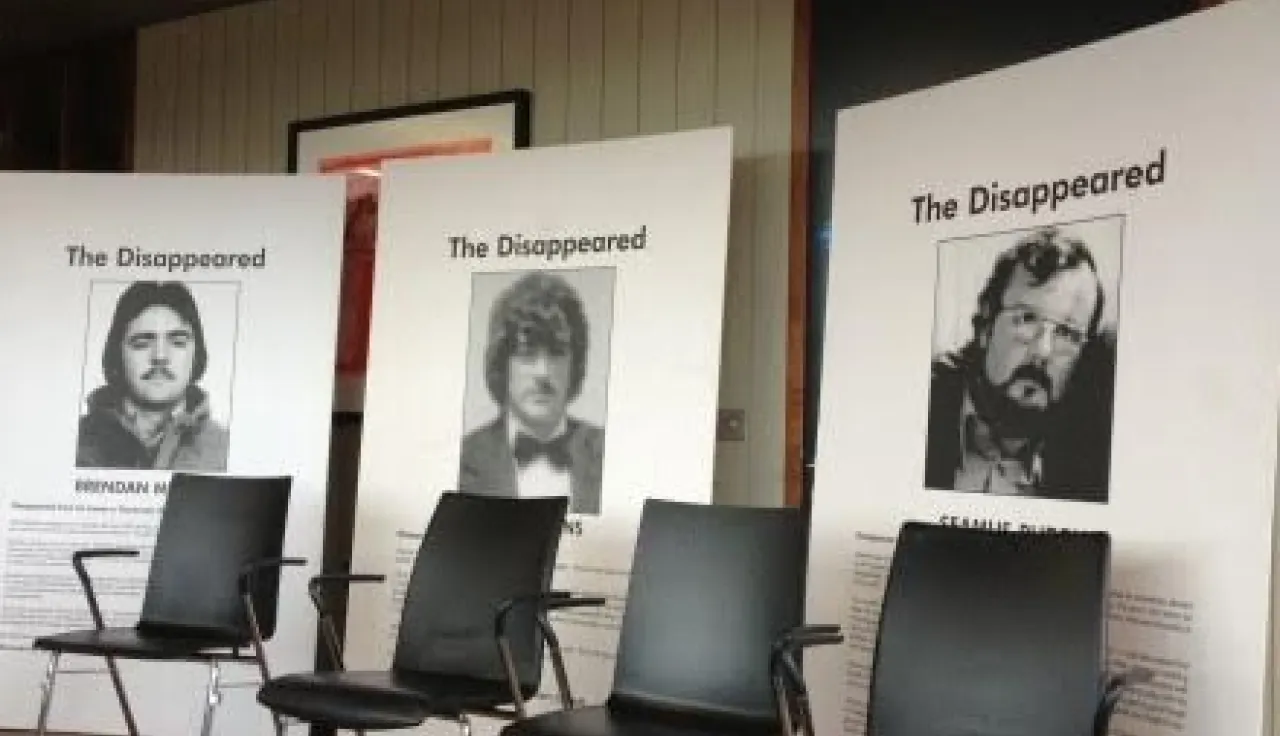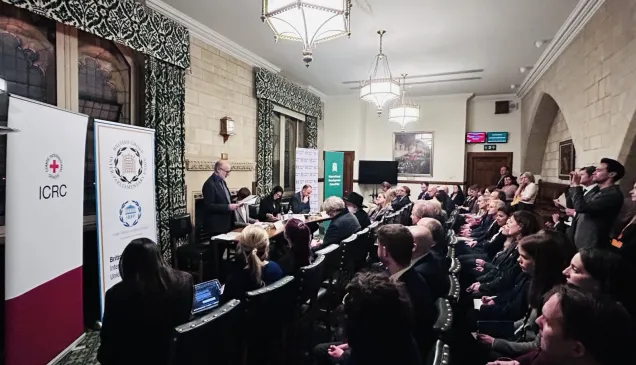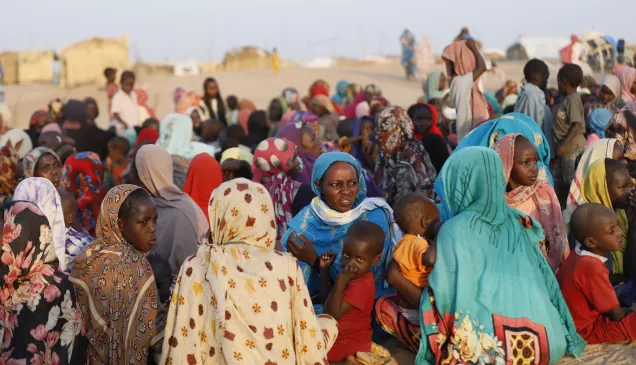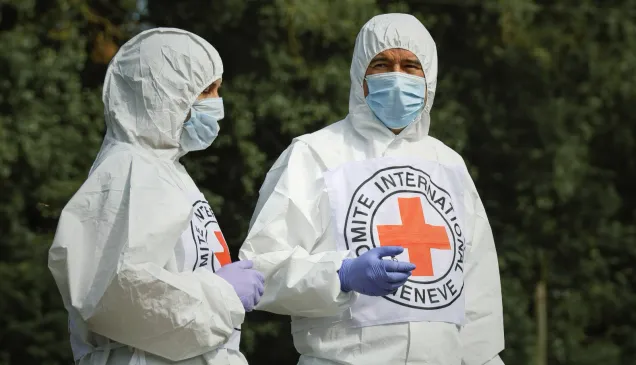International Day of the Disappeared 2016: The missing in Northern Ireland.

The International Day of the Disappeared, marked each year on 30 August, recognizes people still missing through armed conflict, disaster and migration. The ICRC and National Red Cross and Red Crescent Societies are working with families, national authorities and community organizations in over 70 countries, helping to alleviate the suffering and end the haunting silence that disappearance of loved ones leaves behind.
Since the signing of the 1998 Good Friday Peace Agreement in Northern Ireland, some communities are still living with the legacy of 'the troubles'- a term used to describe the political and sectarian violence that characterized Northern Ireland between 1968 until 1998. Since 2011, the ICRC in Northern Ireland has been working with grass-roots community based organizations that seek to mitigate the humanitarian consequences of ongoing acts of violence.
One enduring legacy of this period of violence is the issue of the disappeared. As part of the 1998 Good Friday Peace Agreement, the Independent Commission for the Recovery of Victims' Remains (ICLVR) was set up in 1999 through legislation in London and Dublin, allowing for the sharing of information on the location of victims remains without any fear of prosecution. This information allows forensic experts to identify possible burial sites and teams of specialist forensic anthropologists spend up to six months on digs to search for remains in bogs, fields, beaches and other isolated places, mainly in the Republic of Ireland.
"As in many post-conflict situations, the issue of missing people remains an open wound for families decades after conflicts have ended" said ICRC Belfast Head of Office Laure Schneeberger. "Until the fate of their loved ones is established, families are unable to move on and have any closure. The ICRC values and encourage any efforts made to provide answers to the families and to alleviate their suffering."
"It's very difficult for those families who are still waiting for news. They are in a state of limbo until the truth is established," says Sandra Peake, Chief Executive of WAVE, a grass roots, cross community, voluntary organization formed in 1991 to provide support for those who suffered trauma during the violence.
"The families of those missing have the right to have their loved ones returned to their families for a proper burial," she adds, comparing her experiences with a visit to Bosnia Herzegovina where over 7000 people are still unaccounted for in the post-conflict era. "The commonalties for the families were very stark. The sense of loss is compounded when loved ones are not laid to rest. In Northern Ireland, as in many other cultures, the right to a proper burial is extremely important."
In recent years the ICRC and WAVE have forged a working relationship, with the ICRC sharing its expertise and global experience in the area of the missing, as well as its dialogue with different groups and individuals.
"The ICRC's role as an international, neutral and independent organization gives them trust and credibility to talk to communities on all sides in Northern Ireland," says Peake. "We very much appreciate the solidarity the ICRC has shown in our work to establish the fate of those still missing. Despite the legislation, forensic and archaeological expertise, and government funding, we are relying on people who have information to come forward. We all assumed that this would be straight forward and it hasn't been."
In 2015, to mark the Day of the Disappeared, the ICRC, British Red Cross and WAVE organized a joint photo exhibition at Belfast City Hall and British Red Cross Headquarters in London. The exhibition displayed intimate portraits of all those disappeared and provided a stark reminder that despite a peace agreement, heartbreak and tragedy still remain. "After such a long time, the people still missing risk to be forgotten or dehumanized," said Sean O'Boyle, Principles in Action Manager at the Northern Ireland branch of the British Red Cross. "Through the exhibition we showed that behind every number is a name, a personal story and a history. The names of the missing are not always known beyond the communities they came from and we want to highlight their cases more widely across the UK and beyond."
"One of the hardest things is seeing mothers of the disappeared pass away without knowing what happened to their sons," says Sandra, adding that only two mothers of those acknowledged as disappeared now remain alive. "Until all the cases are addressed, then the issue is not addressed. And time is running out."
"If organizations like WAVE and the ICRC don't continue to highlight these cases, then these people may be disappeared forever. As in all countries around the world, establishing the fate of the missing is a critical part of the reconstruction of society and communities," said ICRC's Schneeberger.
Learn more about the work of the ICRC in Northern Ireland: Read more



